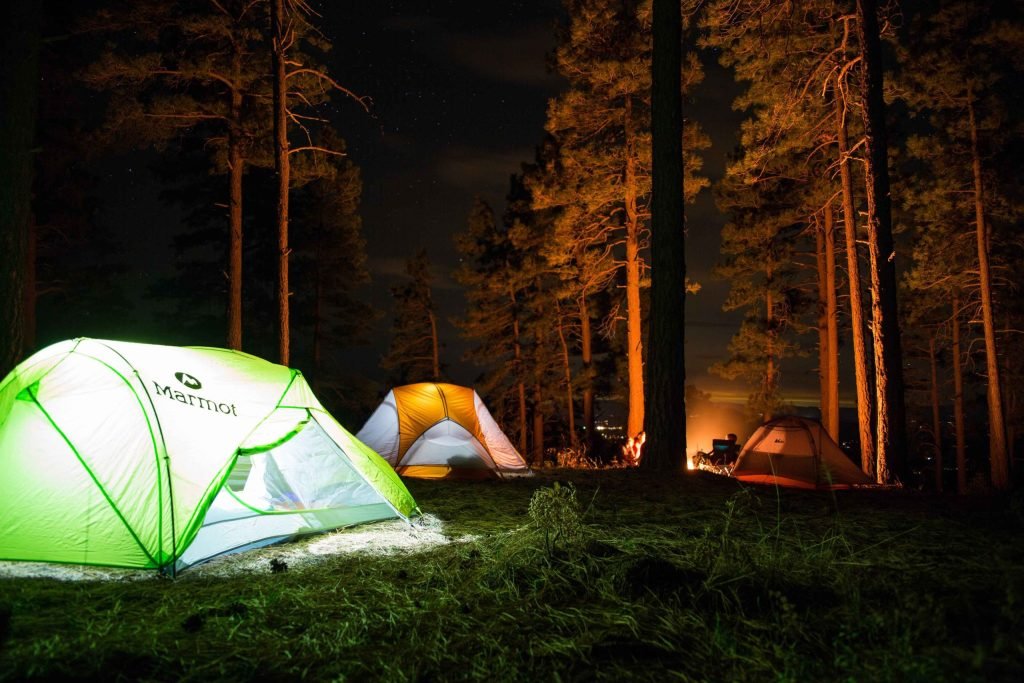Camping is a wonderful way to connect with nature, unwind from the demands of everyday life, and create lasting memories with friends and family. If you’re new to camping, the prospect of venturing into the great outdoors might seem a bit daunting. However, with proper preparation and a sense of adventure, you can embark on an enjoyable and safe camping experience. This beginner’s guide will walk you through the essential steps on how to start camping.
Choose Your Camping Style
Camping comes in various styles, each offering a unique experience. Here are a few options to consider:
Tent Camping: This is the most traditional form of camping. You’ll sleep in a tent, and your level of comfort can range from basic to luxurious, depending on your gear.
Car Camping: Ideal for beginners, a rooftop tent from Roofbunk allows you to park your vehicle near your campsite, making it easier to transport gear and enjoy some creature comforts.
Backpacking: For those seeking a more adventurous experience, backpacking involves hiking to a remote campsite with all your gear on your back. This is often best when you’ve done camping trips a fair number of times.
RV or Camper Camping: If you prefer a homey feel while camping, you can rent or purchase an RV or camper trailer. This is very pricey.
Research Your Destination
Once you’ve chosen your camping style, it’s time to select a destination. Research campgrounds, national parks, or wilderness areas that align with your preferences. Consider factors like location, amenities, and the level of solitude you desire. Most campgrounds have websites with detailed information to help you plan your trip.
Make a Camping Checklist
Before you start camping, make a checklist of essential gear and supplies you’ll need. This includes items like a tent, sleeping bags, sleeping pads, cooking equipment, food, clothing, and personal items. Use a checklist to ensure you don’t forget anything crucial.
Acquire Camping Gear
If you don’t already have camping gear, you’ll need to invest in some essentials. Consider borrowing or renting gear initially to see if camping is right for you before making a significant investment. Key items to acquire include:
- A durable tent suitable for your group size
- Warm and weather-appropriate sleeping bags
- Comfortable sleeping pads or air mattresses
- Cooking equipment, such as a portable stove, cookware, and utensils
Proper clothing for the expected weather conditions
Learn Basic Camping Skills
Before you start camping, familiarize yourself with basic camping skills, such as:
- Setting up and taking down your tent
- Building and maintaining a campfire safely
- Cooking meals over a campfire or portable stove
- Identifying local wildlife and plants
- Navigating using maps and compasses
Practice Leave No Trace Principles
Respect the environment by following Leave No Trace principles. This involves leaving your campsite as you found it, disposing of waste properly, and minimizing your impact on nature.
Plan Your Meals
Plan your camping meals in advance, considering dietary restrictions and preferences. Opt for easy-to-prepare meals and pack food in airtight containers to prevent spoilage and attract wildlife. Don’t forget to bring plenty of clean drinking water or a water purification system.
Prepare for Safety
Safety is paramount when you start camping. Inform someone you trust about your camping plans, including your location and expected return date. Familiarize yourself with the potential hazards of your chosen destination and learn basic first-aid skills.
With proper preparation and a sense of adventure, you can embark on memorable camping trips that provide relaxation, rejuvenation, and a deep connection with nature. So, pack your gear, pick your destination, and start camping today!



